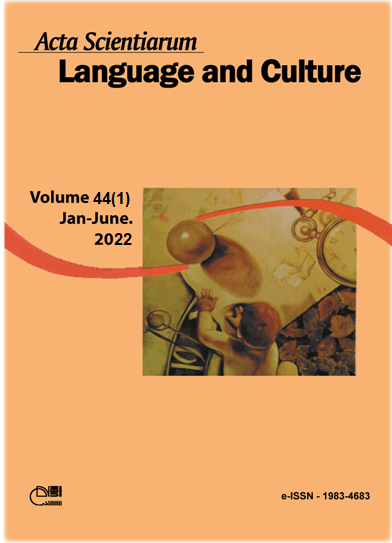O perdigoto e o Sars-Cov-2: a voz em mundos pós-humanos
Resumo
Busca-se, em diálogo com as chamadas perspectivas pós-humanistas, com as teorias do discurso e a par dos efeitos da pandemia Sars-CoV-2, descrever a emergência de uma nova cartografia para a voz, como um complexo semiótico-discursivo-material interespécie que desafia o estatuto do humano tal como produzido pela modernidade europeia. Para tanto, a partir de um arcabouço foucaultiano e dos conceitos baradianos de agência e de intra-ação, propõe-se que a coexistência entre humanos e o vírus Sars-CoV-2, ao produzir uma pandemia, fez emergir novos regimes de inteligibilidade, visibilidade e audibilidade para a voz que, por sua vez, requisitam uma revisão epistemológica que considere a presença, a vulnerabilidade dos corpos e a assimétrica distribuição de escuta, de vida e de morte. Assume-se, finalmente, a viragem ética que a voz solicita no âmbito das relações corpo a corpo, em sua materialidade e discursividade, de toda forma, embate de lutas, que caracteriza a vida e as relações interespécie na Terra.
Downloads
DECLARAÇÃO DE ORIGINALIDADE E DIREITOS AUTORAIS
Declaro que o presente artigo é original, não tendo sido submetido à publicação em qualquer outro periódico nacional ou internacional, quer seja em parte ou em sua totalidade.
Os direitos autorais pertencem exclusivamente aos autores. Os direitos de licenciamento utilizados pelo periódico é a licença Creative Commons Attribution 4.0 (CC BY 4.0): são permitidos o acompartilhamento (cópia e distribuição do material em qualqer meio ou formato) e adaptação (remix, transformação e criação de material a partir do conteúdo assim licenciado para quaisquer fins, inclusive comerciais.
Recomenda-se a leitura desse link para maiores informações sobre o tema: fornecimento de créditos e referências de forma correta, entre outros detalhes cruciais para uso adequado do material licenciado.




















6.png)









